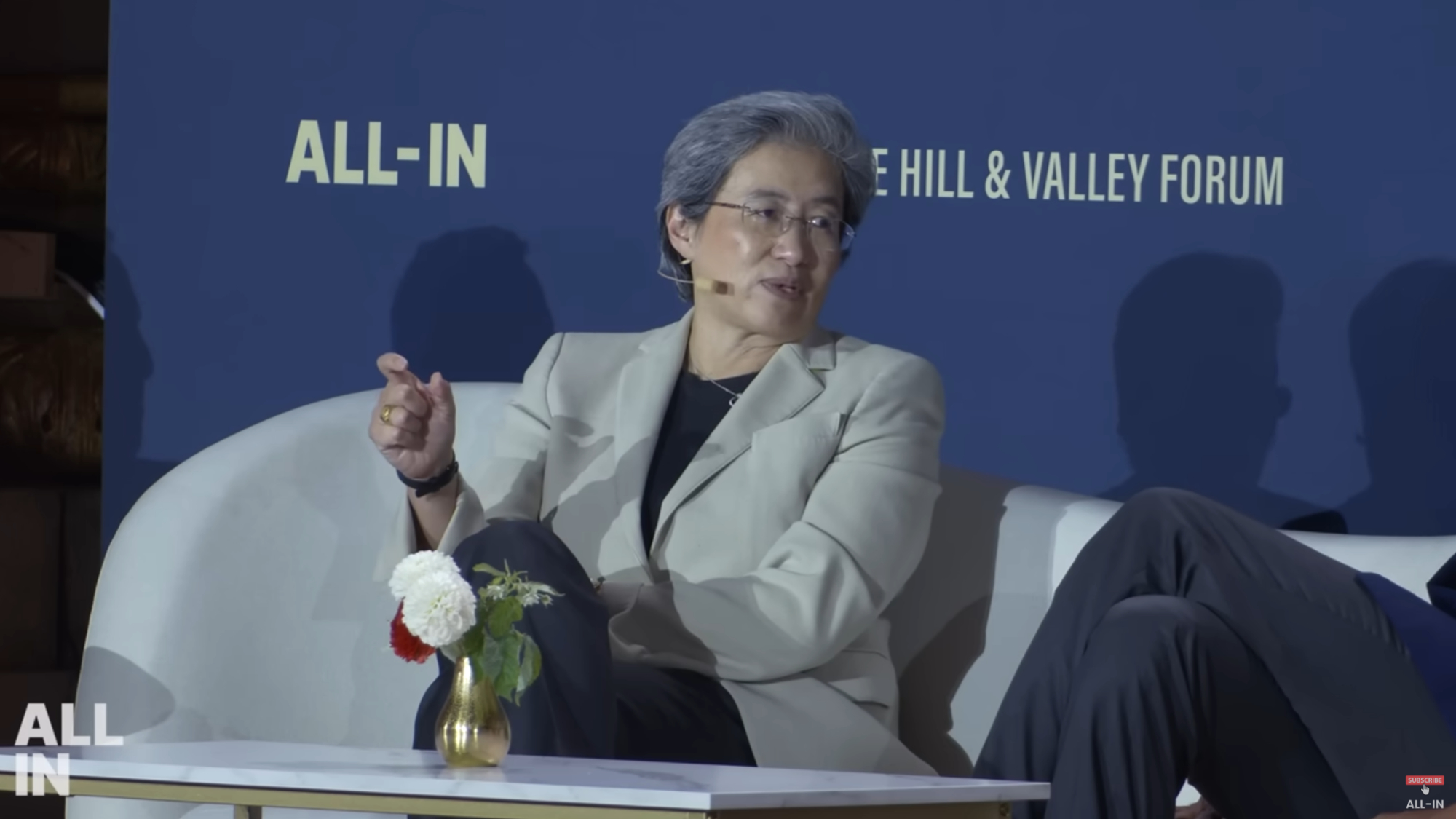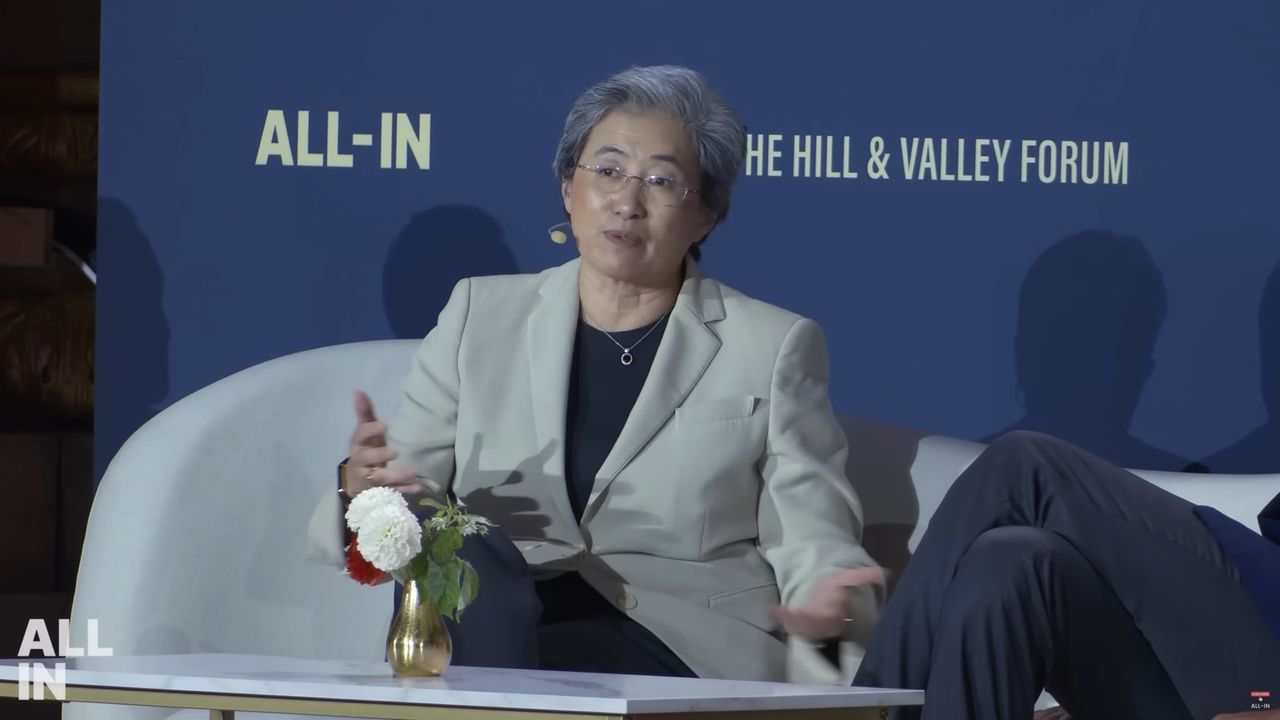AI appreciation day might have officially been on 16 July, but it seems more like it was the last 24 hours, what with Trump’s AI action plan and the ‘Winning the AI Race’ summit. In addition to the president, this latter event was also attended by both AMD CEO Dr. Lisa Su and Nvidia CEO Jensen Huang. And amidst some expected general ‘praise AI’ fluff, Dr. Su said something interesting: Next-generation AMD GPUs might be made with the help of AI.
This was in response to being asked whether any R&D is ongoing at AMD or other places that involves getting AI to come up with new ways of manufacturing—”different approaches that we may not necessarily understand.”
“We think about how AI will design future chips, and it will design pieces of it” said Dr. Su. “But there’s still a creativity of bringing it all together that I think humans are still absolutely at the centre of… So I don’t necessarily see the AI designing our next-generation GPU, but I do see it helping us design the next-generation GPU much faster and more reliably.”
Of course, this is all in the context of AI accelerators, but if AI is used to help design those, we can be pretty confident it would be used to design the GPUs at the heart of some of the next-gen best graphics cards. And if AMD’s doing it, we can bet Nvidia’s doing it, too.
In fact, we know as much, because Nvidia already uses AI to speed up its chip design. That primarily looks to be in the form of a chatbot to help engineers and others involved find documents and so on, although its uses are presumably ever-expanding.
The AMD CEO seems keen on emphasising the importance of AI for the US, just as Huang and Trump are, arguing that schooling should be gearing future generations towards producing the best AI talent. She also has a positive outlook on the end-goal of AI:

“You can actually take AI and make science better, you can take AI and make medicine better, you can take AI and make manufacturing better. You can take AI and make every aspect of your business better, and so in my mind, 10 years from now, we’d like to believe that we’re really leveraging it to solve some of the world’s most important problems.”
Well, creating better and cheaper graphics cards for gaming might not be solving one of the world’s most important problems—sorry, fellow gamers—but it’ll be a nice side effect, if it actually pans out as she describes.
With the amount of money AI companies are borrowing and spending, it’d be nice to see some of that trickle down into gamers’ expectant palms. Now that’s the kind of trickle-down economics I can get behind.
